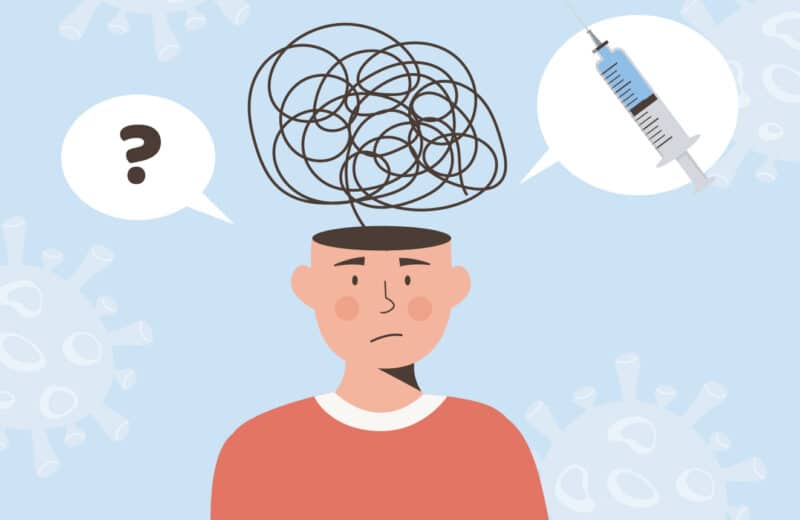Clarissa Donnelly-DeRoven, 27, has accomplished many things. She’s a rural health and Medicaid news reporter, spin class enthusiast, amateur cross-stitcher, master’s degree holder, and … a self-proclaimed perfectionist.
“Perfectionism makes me procrastinate a lot,” Donnelly-DeRoven says. “I spiral about how I’ll never do something as good as I want it to be, and then I never start, so it becomes this self-fulfilling prophecy.”
Donnelly-DeRoven isn’t alone. Perfectionism is deeply rooted in American culture, between capitalistic notions of material success and social media’s influencer culture. Perfectionism has substantially increased in the past few generations, impacting young people’s mental health, according to a meta-analysis published in 2019 in the American Psychological Association’s Psychological Bulletin.
What is perfectionism?
Perfectionism is a personality trait in which individuals place unrealistically high expectations for flawlessness on themselves. For some people, the trait occurs moderately and helps motivate them to reach their goals. But for others, perfectionism can negatively impact their mental health.
“Perfectionism is a spectrum,” says Andy Wade, executive director of the National Alliance on Mental Illness (NAMI) of Illinois. “When any healthy behavior becomes extreme, that’s when it becomes problematic.”
The spectrum begins with adaptive perfectionism — the standard, healthy form of perfectionism. In this form, the trait can propel a person to achieve high standards.
At the other end, maladaptive perfectionism impacts mental health and inhibits people from reaching their goals. This form of perfectionism has been associated with eating disorders, depression, anxiety, obsessive-compulsive disorder, self-harm, substance use disorders, and even suicide.
That’s because perfectionism is a paradox. Perfectionism leads to high levels of burnout, which ends up making the perfectionist’s original goals even more difficult to attain, creating a vicious cycle, says Abby Brown, PsyD, licensed clinical psychologist and director of training at Chicago’s Cityscape Counseling,
“What ultimately ends up happening is the consequences of striving for perfection keep the [individual] from reaching their initial goals or even make it near-impossible to maintain them,” Brown says.
For Donnelly-DeRoven, seeking perfection results in procrastination. “I put things off because I worry I’ll never be able to do them well enough,” she says. “I can’t be disappointed by the outcome or failure if I never start.”
Who struggles with perfectionism?
Researchers have conducted many studies on perfectionism’s correlation with various demographics, including age, gender, race, ethnicity, and birth order. The results show that perfectionism knows no bounds.
“Maladaptive perfectionism is experienced across gender, racial, and ethnic groups and is influenced by a number of factors including genetics, environment, and how one learns to cope,” Brown says.
Common traits among people with perfectionistic tendencies include:
- All-or-nothing thinking.
- Highly critical of themselves.
- Fear of failure.
- Defensiveness.
- Procrastination.
- Self-worth reliant on achievements.
- Need for control.
Perfectionism in young people is rising. The study in the Psychological Bulletin highlighted a stark increase in socially oriented perfectionism — or perceived excessive expectations from others — which rose a whopping 33% between 1989 and 2016.
Pressure from social media, higher educational expectations, increased competition, and economic factors such as the rising cost of living all contribute to the increase, researchers say.
Is there treatment for perfectionism?
If you feel you may be struggling with maladaptive perfectionism, check in with yourself, and honestly assess your patterns of thinking. Wade suggests talking with a trusted friend or family member who can provide a sounding board for your concerns, as well as seeking clinical support from a professional, especially if perfectionism is disrupting your daily life.
For many people, including Donnelly-DeRoven, overcoming perfectionism includes seeking some sort of therapy. Brown suggests radically open dialectical behavior therapy (RO DBT), a form of treatment that addresses disorders that involve excessive self-control. In radical openness, people probe areas that they may find uncomfortable so they can learn how to break free of rigid or overly cautious behavior and increase their openness to new experiences.
“Perfectionism is a hallmark of overcontrol,” Brown says. “RO DBT helps clients to incorporate flexibility, as well as take a look at how their perfectionistic tendencies may be negatively impacting the quality of their relationships. This can help them form deeper connections and decrease mental health symptoms associated with perfectionism.”
Being open, on a personal and societal level, will hopefully help end the perceived stigma about perfectionist issues and make it so fewer people suffer silently.
“With the conversation around mental health growing, now is the perfect time to become a golden age of mental health,” Wade says.













